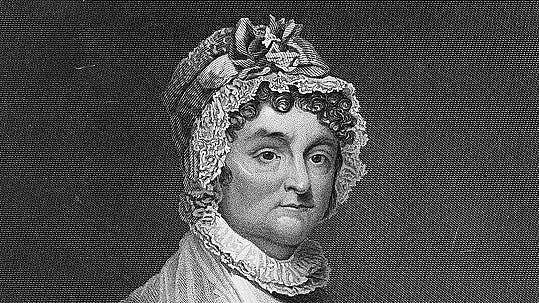Capturing the wisdom of grandmothers
On books of the Bible, Abigail Adams, and the undocumented wisdom we need to write down
Grandmothers occupy an iconic place in many, if not most, of the world's cultures. It's a role often revered for its care and warmth. But we also ought to consider whether it's a role that has gone under-appreciated as a source of wisdom, too.
■ It's no secret that men's voices have occupied much more than half of the space in recorded history: There are just three books of the Bible named for women out of dozens, no matter which canon you use. Well-educated people can name dozens of Founding Fathers and ancient Greek philosophers, but almost none of those names will belong to women.
■ This presents a giant gap in civilization's knowledge of itself. Backfilling the parts from the ancient past is next to impossible -- aside from some rare exceptions like the letters of Abigail Adams (who served an outsized role as a grandmother), we don't have much primary source material to recover from the grandmothers of the past.
■ But that should compel us now to re-assess and value the wisdom of grandmothers living today. The "tend and befriend" theory suggests that women may live longer than men because they often take a different approach to stress than the "fight or flight" reactions so often associated with males.
■ Maternal grandmothers, especially, have an especially strong anthropological connection to their grandchildren: A very small (but non-zero) number of men unwittingly raise children who aren't genetically their own. But a biological mother knows for certain who mothered her children, and she knows without a doubt who mothered her daughter's children, as well.
■ This is almost certainly why maternal grandmothers tend to exhibit bias favoring their grandchildren, and why proximity to grandmothers has evolutionary effects. This actually confers a sort of unique biological imperative for grandmothers to see the best survival advice make its way to their descendants. Some of the advice will be bad, and some grandmothers are fools. But far too little of their judgment has been intentionally preserved over the centuries.
■ If the median age of an American mother at the birth of her first child is 27.3 years, then it's probably fair to assume that age 55 is a reasonably close guess at the median age of a first-time American grandmother. Based upon average remaining life expectancy for a woman of that age, average grandmother-hood should last around 28 years for the women who follow that path in life.
■ That's a lot of time over which to cultivate "grandmotherly wisdom". And it's also a lot of time over which to capture and record it. Grandmothers should be more than a source of cookbooks. We have more capacity than ever to record, document, and disseminate what grandmas know. Civilization would be stronger if we'd set about doing it.



